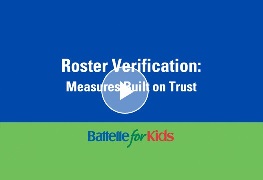Oh Senator, you certainly do manage to stay colorful, don’t you?
In case you don’t recall, Senator Brecheen was the figure kind enough to spend 10 minutes on the floor being shocked that somewhere deep in Appendix G of the Common Core standards, among a few hundred various books, poems, and documents cited as examples of different reading levels, Toni Morrison has written a dirty book.
The only logical solution is to read it on the floor, complete with gasps and euphemisms mostly made up of first initials and the word “word” – “N-word”, “A-word”, “K-word”, etc. Therefore, Common Core was all about promoting rape and sodomy and undercutting American values. His solution was quote Elijah from the Old Testament, who insisted the impure be chased down and executed by sword.
Needless to say, our repeal of Common Core may have saved many lives.
Now he’s after AP-USH, no doubt mostly because we’re tired of Texas having all the fun and looking the craziest. Here’s the text of SB650 as he’s proposed it, although it was no easy task hunting it down. I don’t know how OkEd and Swisher do this full time.
STATE OF OKLAHOMA
1st Session of the 55th Legislature (2015)
SENATE BILL 650
An Act relating to schools; prohibiting state funds from being used to support certain U.S. history courses; prohibiting the State Board of Education from awarding certain grants until certain course framework reverts to framework in place at certain time; directing the State Board of Education by certain date to adopt certain history program; establishing criteria for program; allowing display of certain grade-level documents; providing for codification; providing an effective date; and declaring an emergency.
BE IT ENACTED BY THE PEOPLE OF THE STATE OF OKLAHOMA:
SECTION 1. NEW LAW A new section of law to be codified in the Oklahoma Statutes as Section 1210.704 of Title 70, unless there is created a duplication in numbering, reads as follows:
A. No state funds shall be used to support advanced placement U.S. history courses in Oklahoma schools as the courses are designed as of the effective date of this act.
B. Beginning with the 2015-2016 school year, the State Board of Education shall not award any grants to school districts or make any expenditure of state funds, as authorized by Section 1210.703 of Title 70 of the Oklahoma Statutes, for equipment, instructional materials, course development, professional development or training, examination awards or examination scholarships for advanced placement U.S. history courses until the framework for the course is changed and reverts back to the course framework and examination that were used prior to the 2014-2015 school year.
C. Prior to the 2015-2016 school year, the State Board of Education shall identify and adopt an advanced placement U.S. history program and corresponding assessment that:
1. Are not in contradiction with the subject matter standards for U.S. history adopted by the State Board of Education; and
2. Include the following foundational and historical documents as part of the primary instruction in any U.S. history, honors U.S. history, and advanced placement U.S. history course offered in Oklahoma public schools:
a. organic documents from the pre-Colonial, Colonial, Revolutionary, Federalist, and post-Federalist eras of the United States,
b. major principles in the Federalist Papers,
c. the writings, speeches, documents, and proclamations of the founders and presidents of the United States,
d. America’s founding documents that contributed to the foundation or maintenance of America’s representative form of limited government, free-market economic system, and American exceptionalism,
e. objects of historical significance that have formed and influenced the United States’ legal or governmental system and that exemplify the development of the rule of law, including but not limited to the Magna Carta, the Mecklenburg Declaration, the Ten Commandments, and the Justinian Code,
f. U.S. Supreme Court decisions,
g. acts of U.S. Congress, including the published text of the Congressional Record,
h. United States treaties, and
i. other documents, writings, speeches, proclamations, or records relating to the history, heritage, or foundation of the United States, including, in whole, but not limited to:
(1) the Declaration of Independence,
(2) the U.S. Constitution and its amendments,
(3) the Mayflower Compact,
(4) the Bill of Rights,
(5) the Articles of Confederation,
(6) the Virginia Plan,
(7) the Northwest Ordinance,
(8) the motto of the United States,
(9) the National Anthem,
(10) the sermon known as “Model of Christian Charity” by John Winthrop,
(11) the sermon known as “Sinners in the Hands of an Angry God” by Jonathan Edwards,
(12) “Give Me Liberty or Give Me Death” speech by Patrick Henry,
(13) “Remember the Ladies” letter by Abigail Adams,
(14) the writing “Common Sense, Section III: Thoughts on the Present State of American Affairs” by Thomas Paine,
(15) the essay “Federalist Paper No. 10” by James Madison,
(16) George Washington’s farewell address,
(17) Monroe Doctrine,
(18) at least a complete overview of the book entitled “Democracy in America” by Alexis de Tocqueville,
(19) the document known as “Declaration of Sentiments” by Elizabeth Cady Stanton,
(20) Independence Day Speech at Rochester by Frederick Douglass,
(21) “House Divided” speech by Abraham Lincoln,
(22) the “Gettysburg Address” by Abraham Lincoln,
(23) the Second Inaugural Address by Abraham Lincoln,
(24) the “Surrender Speech” by Chief Joseph,
(25) the poem entitled “The New Colossus” by Emma Lazarus,
(26) “The Gospel of Wealth” by Andrew Carnegie,
(27) “The Significance of the Frontier in American History” by Frederick Jackson Turner,
(28) the “Atlanta Compromise” speech by Booker T. Washington,
(29) the “Cross of Gold” speech by William Jennings Bryan,
(30) Roosevelt Corollary by Theodore Roosevelt,
(31) “New Nationalism” speech by Theodore Roosevelt,
(32) “Peace Without Victory” speech by Woodrow Wilson,
(33) First Inauguration Address by Franklin D. Roosevelt,
(34) portions of the book entitled “The Grapes of Wrath” by John Steinbeck,
(35) “The Four Freedoms” speech by Franklin D. Roosevelt,
(36) “Day of Infamy” speech by Franklin D. Roosevelt,
(37) “The Sources of Soviet Conduct” by George Kennan,
(39) the address that became known as the “Truman Doctrine” made by Harry S. Truman,
(40) Address on Little Rock by Dwight Eisenhower,
(41) Farewell Address by Dwight Eisenhower,
(42) Inaugural Address by John F. Kennedy,
(43) “The Decision to Go to the Moon” speech by John F. Kennedy;
(44) “Letter From Birmingham Jail” by Martin Luther King, Jr.,
(45) “I Have a Dream” speech by Martin Luther King, Jr.,
(46) “The Ballot or the Bullet” speech by Malcolm X,
(47) “Great Society” speech by Lyndon B. Johnson,
(48) “The American Promise” speech by Lyndon B. Johnson,
(49) First Inaugural Address by Ronald Reagan,
(50) “40th Anniversary of D-Day” speech by Ronald Reagan,
(51) “Remarks at the Brandenburg Gate” speech by Ronald Reagan; and
(52) the address to the nation speech made on September 11, 2001, by George W. Bush.
School districts shall permit teachers to display grade-level appropriate excerpts from or copies of the documents, writings, speeches, proclamations or records listed in this subsection in school classrooms and school building common areas as appropriate.
SECTION 2. This act shall become effective July 1, 2015.
SECTION 3. It being immediately necessary for the preservation of the public peace, health and safety, an emergency is hereby declared to exist, by reason whereof this act shall take effect and be in full force from and after its passage and approval.
55-1-396 EB 1/27/2015 3:31:09 PM
This deserves commentary by those much smarter than myself, although I’ll of course rant about this more soon. My favorite part is that getting these documents and the accompanying silliness into law is “immediately necessary for the preservation of public peace, health and safety.”
That’s right folks, funding be damned – THIS is an EMERGENCY.
RELATED POST: We’ve Found A Witch – May We Burn Her?
RELATED POST: Nooobody Expects the Spanish Inquisition!
RELATED POST: Meet Senator Josh Brecheen, Part I – Fire From Heaven
RELATED POST: Meet Senator Josh Brecheen, Part II – Books on the Bonfire

 Sometimes we just make things too complicated.
Sometimes we just make things too complicated. New Wineskin #1: A few key districts simply refuse to administer any state standardized tests. It would be better if there was PTSA buy-in, and the younger the age group, the better. It would be more effective if there were 3 or 4 districts of some size, at least one of which is generally very successful at such things and another of which is not. Unite, refuse, then see what happens – it’s on the state to make the next move.
New Wineskin #1: A few key districts simply refuse to administer any state standardized tests. It would be better if there was PTSA buy-in, and the younger the age group, the better. It would be more effective if there were 3 or 4 districts of some size, at least one of which is generally very successful at such things and another of which is not. Unite, refuse, then see what happens – it’s on the state to make the next move. New Wineskin #2: Districts start offering different types of diplomas. Students planning on going full legit university take full legit academic classes. They AP, they IB, they read and write and inquire and think – they can even Common Core if you wish. Those thinking they’d prefer something more practical or vocational will still be exposed to basic science and math and such, but we don’t need to drag them kicking and screaming through a complex thesis sentence or Algebra II before cosmetology school. Our cultish obsession with ‘core subjects’ can be replaced with something useful – not coldly utilitarian, but based on where students are going and what they want to do.
New Wineskin #2: Districts start offering different types of diplomas. Students planning on going full legit university take full legit academic classes. They AP, they IB, they read and write and inquire and think – they can even Common Core if you wish. Those thinking they’d prefer something more practical or vocational will still be exposed to basic science and math and such, but we don’t need to drag them kicking and screaming through a complex thesis sentence or Algebra II before cosmetology school. Our cultish obsession with ‘core subjects’ can be replaced with something useful – not coldly utilitarian, but based on where students are going and what they want to do. New Wineskin #3: Universities should stop requiring high school diplomas and businesses should stop requiring degrees. Let’s be honest – that stuff is mostly a convenience for the institutions rather than real requirements for what students or employees will be doing. We’re always hearing universities complain the freshmen all require remediation anyway, and it seems few companies hire based on WHICH degrees you have – they’re just happy you have… something. Institutions and industries can come up with more appropriate entrance expectations or preparatory training.
New Wineskin #3: Universities should stop requiring high school diplomas and businesses should stop requiring degrees. Let’s be honest – that stuff is mostly a convenience for the institutions rather than real requirements for what students or employees will be doing. We’re always hearing universities complain the freshmen all require remediation anyway, and it seems few companies hire based on WHICH degrees you have – they’re just happy you have… something. Institutions and industries can come up with more appropriate entrance expectations or preparatory training. New Wineskin #4: Allow teachers to teach the subjects they want and students to choose what they want from those offerings. Like colleges do when trying to garner all that scholarship money by wooing new students with those colorful course descriptions, let high schools offer shorter, more interesting options from which to choose. Some should be close enough to ‘core subjects’ to expose students to the fundamental tenets of each, but generally the framework should be flexible enough that everyone involved doesn’t hate themselves for being there. You take 3 or 4 weeks, then you sign up for new selections. Some may build on one another; most could stand alone.
New Wineskin #4: Allow teachers to teach the subjects they want and students to choose what they want from those offerings. Like colleges do when trying to garner all that scholarship money by wooing new students with those colorful course descriptions, let high schools offer shorter, more interesting options from which to choose. Some should be close enough to ‘core subjects’ to expose students to the fundamental tenets of each, but generally the framework should be flexible enough that everyone involved doesn’t hate themselves for being there. You take 3 or 4 weeks, then you sign up for new selections. Some may build on one another; most could stand alone. New Wineskin #5: Put me in charge. Unlimited legislative and judicial authority, and extensive resources. Perhaps a concubine or three.
New Wineskin #5: Put me in charge. Unlimited legislative and judicial authority, and extensive resources. Perhaps a concubine or three. Note: After
Note: After  I don’t even teach a tested subject this year. State law as it stands this week (it’s been rather flaky lately, so who knows what 30 days from now might bring?) says I can pretty much make up my own standards for VAM in my department, while my friends down in the Math & Science halls are tied to tests already taken and cut scores which are determined by random rolls of leftover D&D dice sometime in July.
I don’t even teach a tested subject this year. State law as it stands this week (it’s been rather flaky lately, so who knows what 30 days from now might bring?) says I can pretty much make up my own standards for VAM in my department, while my friends down in the Math & Science halls are tied to tests already taken and cut scores which are determined by random rolls of leftover D&D dice sometime in July.  This is wrong – this electronic tying of each teacher to each kid based solely on who’s on your grade book at a given point. It doesn’t matter that I have upper middle class white Methodists from two-parent families who only miss school for golf or family vacations to Europe, while the guy next to me has kids suspended so often he has more class admit forms than completed assignments.
This is wrong – this electronic tying of each teacher to each kid based solely on who’s on your grade book at a given point. It doesn’t matter that I have upper middle class white Methodists from two-parent families who only miss school for golf or family vacations to Europe, while the guy next to me has kids suspended so often he has more class admit forms than completed assignments.  Which is the opposite of what I teach my kids all year. It’s the antithesis of that stuff that helps maintain the thin illusion that anything we’re doing here matters, or has value, or could change anything. “Don’t rock the boat – it won’t help!” That should replace the other posters in my classroom for the last two weeks. Just sit in the back of the damn bus. Just finish the wire transfer from the hidden account. Just ignore the policies that maintain poverty for political gain, or segregation for social stability. Just walk past the problem.
Which is the opposite of what I teach my kids all year. It’s the antithesis of that stuff that helps maintain the thin illusion that anything we’re doing here matters, or has value, or could change anything. “Don’t rock the boat – it won’t help!” That should replace the other posters in my classroom for the last two weeks. Just sit in the back of the damn bus. Just finish the wire transfer from the hidden account. Just ignore the policies that maintain poverty for political gain, or segregation for social stability. Just walk past the problem. I have students coming in 15 minutes, and we should be discussing what we’ve read so far in The Grapes of Wrath. I’d meant to talk about “Joe Davis’s boy,” who drives the tractor that’s tearing up their land and down their homes, and I’ll ask them whether he’s part of the problem or not.
I have students coming in 15 minutes, and we should be discussing what we’ve read so far in The Grapes of Wrath. I’d meant to talk about “Joe Davis’s boy,” who drives the tractor that’s tearing up their land and down their homes, and I’ll ask them whether he’s part of the problem or not.

 I should begin by saying that this post is in no way intended to advocate for one candidate or the other in this race. Not that there’s anything wrong with a little political editorializing – but this mini-trove of wisdom is here for THE WINNER, whoever that may be. If you want to talk substantive issues in depth, search Twitter – that’s what they do there. Or I guess you could go to
I should begin by saying that this post is in no way intended to advocate for one candidate or the other in this race. Not that there’s anything wrong with a little political editorializing – but this mini-trove of wisdom is here for THE WINNER, whoever that may be. If you want to talk substantive issues in depth, search Twitter – that’s what they do there. Or I guess you could go to  (2) Don’t pay too much attention to teachers. I love my profession and my peers, but there are some real weirdos in the mix, and they tend to be loudest. Besides, none of us can quite agree even what we think school is for – you can hardly expect us to have a coherent message how to best make it happen. Strong leadership means doing what’s best for the kids, long-term – not what’s popular with the entrenched majority. Sometimes teachers need to be willing to listen, and learn – maybe change some of the assumptions they’ve held for so long.
(2) Don’t pay too much attention to teachers. I love my profession and my peers, but there are some real weirdos in the mix, and they tend to be loudest. Besides, none of us can quite agree even what we think school is for – you can hardly expect us to have a coherent message how to best make it happen. Strong leadership means doing what’s best for the kids, long-term – not what’s popular with the entrenched majority. Sometimes teachers need to be willing to listen, and learn – maybe change some of the assumptions they’ve held for so long. (5) With great power comes great responsibility. The Epistle of James (that’s in the BIBLE, for you non-Okies who might be reading) says that teachers will be judged more harshly for the positions they hold. You are in that position a hundredfold. James goes on to suggest that anyone who can control their tweets has self-control in all things. Be aware that everything you say, post, or do, sends ripples across more time and space than you’d ever intend.
(5) With great power comes great responsibility. The Epistle of James (that’s in the BIBLE, for you non-Okies who might be reading) says that teachers will be judged more harshly for the positions they hold. You are in that position a hundredfold. James goes on to suggest that anyone who can control their tweets has self-control in all things. Be aware that everything you say, post, or do, sends ripples across more time and space than you’d ever intend. (10) Question everything. Are this set of standards or that set over there really THE KEY to Oklahoma’s success? If we can just find the right curriculum to post, are our biggest problems basically solved? Are “Oklahoma Values” something we wish to define and defend, or just something that sounds anti-something else? Is everything local wholesome and wise… everything national evil and dark? Are those of us raging against ignorance really SO willing to base future-shaping decisions on whether or not listing Thomas Jefferson in Paragraph 19 Subsection C is THE primary cause of Americans joining ISIS?
(10) Question everything. Are this set of standards or that set over there really THE KEY to Oklahoma’s success? If we can just find the right curriculum to post, are our biggest problems basically solved? Are “Oklahoma Values” something we wish to define and defend, or just something that sounds anti-something else? Is everything local wholesome and wise… everything national evil and dark? Are those of us raging against ignorance really SO willing to base future-shaping decisions on whether or not listing Thomas Jefferson in Paragraph 19 Subsection C is THE primary cause of Americans joining ISIS? You’re representing thousands of teachers and kids and possibilities and shortcomings and breakthroughs and nonsense and hope. Chances are good no matter what you do, we’ll all have turned on you in a matter of months and will repeatedly mock and condemn you. Don’t expect us to feel too badly for you on that count – remember, teachers here. That’s our daily existence.
You’re representing thousands of teachers and kids and possibilities and shortcomings and breakthroughs and nonsense and hope. Chances are good no matter what you do, we’ll all have turned on you in a matter of months and will repeatedly mock and condemn you. Don’t expect us to feel too badly for you on that count – remember, teachers here. That’s our daily existence.